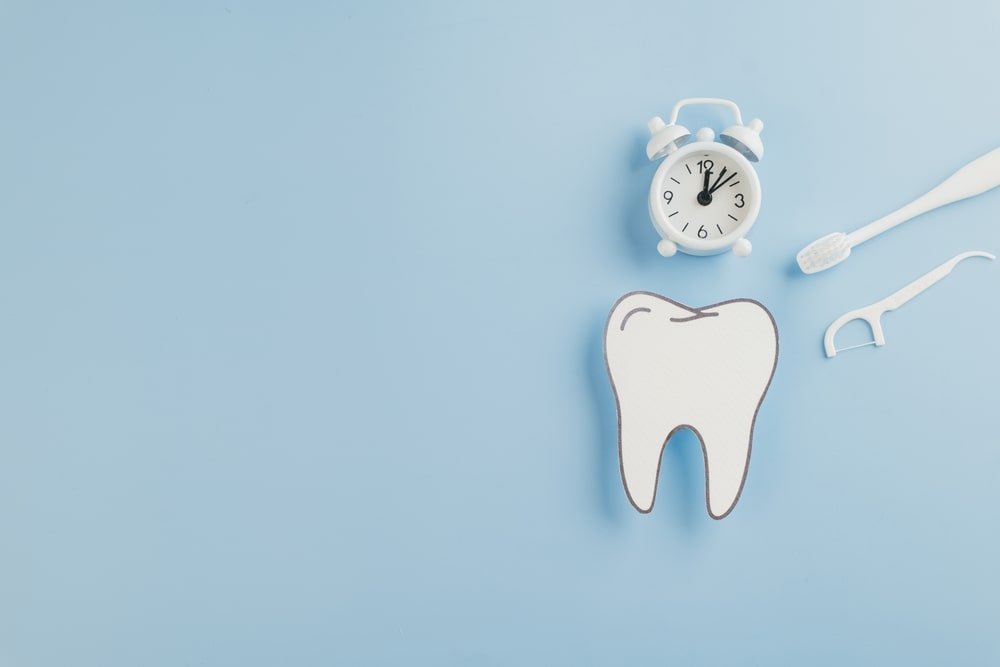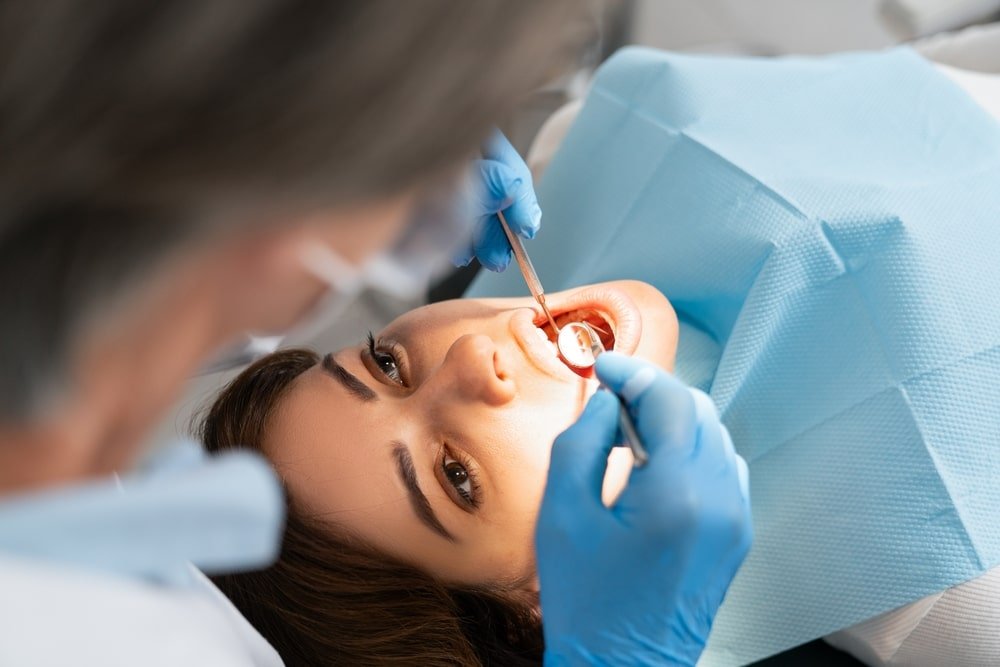A full mouth reconstruction is a comprehensive process, often involving a combination of procedures like dental implants, crowns, bridges, veneers, and sometimes gum therapy or orthodontics. It’s designed to restore strength, function, and aesthetics to your entire mouth. Because it’s a complex, multi-faceted solution, its long-term care also needs to be comprehensive and tailored. Think of it this way: your reconstructed mouth is a sophisticated system, with each component playing a vital role.
Just like a skilled mechanic understands every part of your luxury car, you and your dental team need to understand the nuances of your specific reconstruction to maintain it properly.
The Core Pillars of Longevity: Your Daily Maintenance Blueprint
Diligent daily care is the bedrock of a long-lasting full mouth reconstruction.
This isn’t just about preventing cavities; it’s about preserving the integrity of your implants, the fit of your crowns, and the health of your gums that support everything.
Brushing: The Foundation of Oral Health

Brushing might seem straightforward, but with a full mouth reconstruction, it requires a little extra finesse.
- The Right Tools: Your dentist might recommend a soft-bristled toothbrush, an electric toothbrush with a sensitive setting, or even an implant-specific brush. Avoid abrasive toothpastes that could scratch restorative materials like porcelain or zirconia.
- Targeted Technique: Focus on gently cleaning all surfaces of your crowns, bridges, and around your implants. Pay special attention to the gum line, where plaque tends to accumulate. For areas around implants, a gentle, circular motion is often best to keep the surrounding gum tissue healthy and prevent issues like peri-implantitis.
- Why it Matters: Proper brushing removes plaque and food debris, preventing gum inflammation (gingivitis) and more serious conditions that could jeopardize the foundation of your reconstruction.
Flossing & Interdental Cleaning: Reaching Every Nook and Cranny
Brushing alone can’t reach between teeth or under certain restorations. This is where interdental cleaning becomes crucial.
- Traditional Floss: For areas with individual crowns or natural teeth, traditional floss can be effective. Use a gentle, C-shaped motion, curving the floss around each tooth surface.
- Water Flossers (Oral Irrigators): These are often highly recommended for full mouth reconstructions, especially for cleaning around implants, under bridges, and between tightly spaced restorations. The pulsating water stream effectively removes food particles and plaque without causing trauma.
- Interdental Brushes: Small, tapered brushes are excellent for cleaning larger gaps between teeth, under bridges, or around implant abutments that are exposed. Your dental hygienist can show you the correct sizes and techniques for your specific needs.
- Why it Matters: Neglecting interdental cleaning can lead to plaque buildup in hard-to-reach areas, increasing the risk of gum disease and decay around natural teeth, or peri-implantitis (inflammation around implants) – a major threat to implant longevity.
Specialized Rinses and Products
Depending on your specific needs, your dentist might recommend an antimicrobial mouthrinse to help control bacteria, or a fluoride rinse to strengthen any remaining natural tooth structure.

Always choose alcohol-free rinses, as alcohol can be drying and irritating to oral tissues.
Discuss any specific products with your White Tooth Dental, Toronto team to ensure they are compatible with your restorations.
Your Diet: A Long-Term Partner in Protection
While your FMR allows you to enjoy a wider variety of foods, mindful eating habits contribute to its longevity.
- Beyond Immediate Recovery: After the initial healing phase, you can typically return to a normal diet. However, for long-term protection, it’s wise to limit extremely hard or sticky foods that could potentially chip crowns or dislodge restorations.
- Balanced Nutrition: A diet rich in fruits, vegetables, and lean proteins supports overall health, including the health of your gums and bone that support your reconstruction.
- Hydration: Drinking plenty of water helps rinse away food particles and maintains saliva flow, which is crucial for natural oral cleansing and remineralization.
- Why it Matters: Preventing excessive force on your new teeth reduces the risk of chipping or premature wear, while good nutrition supports the healthy foundation your reconstruction relies upon.
Beyond Daily Care: Strategic Protection & Professional Partnership
Your daily routine is vital, but a comprehensive long-term care plan also involves protective appliances and regular professional oversight.
The Critical Role of Protective Appliances
Some habits, often unconscious, can put your full mouth reconstruction at risk. This is where protective appliances come in.
- Nightguards (Occlusal Guards): If you grind or clench your teeth (bruxism) – especially at night – a custom-fitted nightguard is non-negotiable. It acts as a protective barrier, absorbing the forces of clenching and grinding, preventing wear, fractures, or loosening of your crowns, bridges, and implants. Many people aren’t even aware they grind their teeth, so your dentist will assess for signs of wear during your check-ups.
- Sports Guards: If you participate in any contact sports, a custom sports guard is essential. It protects your entire reconstruction from impact, which could otherwise lead to serious damage or injury.
- Why they Matter: These appliances protect your significant investment from damage caused by unconscious habits or accidental trauma, extending the life of your restorations and preventing costly repairs.
Regular Dental Check-ups: Your FMR’s Best Friends
Even with the most meticulous home care, professional cleanings and examinations are indispensable.

Your White Tooth Dental team plays a crucial role as your long-term partner in maintaining your reconstruction.
- Professional Cleanings: Our skilled hygienists use specialized tools and techniques to thoroughly clean around your implants, crowns, and bridges, reaching areas that home care can’t. They remove hardened plaque (calculus) that can lead to gum disease.
- Comprehensive Examinations: During your check-ups, your dentist will meticulously examine every component of your full mouth reconstruction. They’ll assess the health of your gums, check for any signs of wear or damage to your restorations, evaluate your bite, and screen for any potential issues early.
- Early Detection: Many problems with a full mouth reconstruction, like peri-implantitis or micro-fractures in crowns, are much easier and less expensive to address when caught early. Regular visits allow your dental team to spot these “red flags” before they become major concerns.
- Personalized Advice: Your White Tooth Dental team will provide tailored advice on your home care routine, recommending specific products or techniques as your needs evolve.
- Why they Matter: These appointments are your best defense against long-term complications. They provide the professional oversight and specialized cleaning necessary to maintain the health and integrity of your reconstruction. Our commitment to comprehensive care means we’re here for you through every stage of your dental journey. [Link to: Our Comprehensive Dental Services] for more information on our wide range of offerings.
Understanding Your Unique Restorations: Tailored Care
While general principles apply, specific components of your full mouth reconstruction may require unique attention:
- Dental Implants: The focus is on preventing peri-implantitis (gum disease around implants). This involves meticulous cleaning around the implant posts and regular monitoring of the surrounding gum and bone. [Link to: Dental Implants: What to Expect] if you’re curious about the implant process.
- Crowns and Bridges: These ceramic or zirconia restorations are very durable but can chip or fracture under extreme force. Care involves gentle cleaning, avoiding very hard foods, and using a nightguard if you clench or grind.
- Veneers: While part of a full mouth reconstruction for aesthetic enhancement, their care is similar to natural teeth, with an emphasis on gentle brushing and avoiding excessive biting forces on very hard items.
Troubleshooting & Early Warning Signs: Being Proactive
Even with the best care, minor issues can occasionally arise. Knowing what to look for and when to contact your dentist can prevent small concerns from escalating.
What to Watch For: “Red Flags” You Shouldn’t Ignore
- Persistent Sensitivity: While some initial sensitivity is normal, persistent or increasing sensitivity in a specific area could indicate an issue.
- Changes in Your Bite: If your bite feels “off” or different than usual, it could signal a problem with a restoration or underlying shifting.
- Visible Damage: Any chips, cracks, or looseness in a crown, bridge, or implant should be addressed immediately.
- Gum Changes: Redness, swelling, bleeding, or recession around your restorations, especially implants, are significant warning signs of gum disease or peri-implantitis.
- Persistent Bad Breath or Taste: These could indicate an underlying infection or excessive plaque buildup.
When to Call Your Dentist
If you experience any of the “red flags” above, or if you have any concerns at all about your full mouth reconstruction, don’t hesitate to contact your White Tooth Dental team. It’s always better to err on the side of caution.
We also offer Dental Emergencies services for urgent situations, ensuring you always have support when you need it most.
Systemic Health & Your FMR: A Holistic View
Your oral health is intrinsically linked to your overall systemic health.

Conditions like diabetes, osteoporosis, and certain medications can impact the longevity of your full mouth reconstruction.
- Diabetes: Poorly controlled diabetes can impair healing and increase the risk of gum disease, including peri-implantitis. Maintaining good blood sugar control is vital.
- Smoking: Smoking significantly increases the risk of gum disease and implant failure. Quitting smoking is one of the best things you can do for your oral and overall health.
- Medications: Certain medications can cause dry mouth, which reduces saliva’s protective effects. Discuss all medications with your dental team so they can recommend strategies to mitigate any risks.
Understanding these connections empowers you to make lifestyle choices that support both your general well-being and the success of your dental investment.
The Lifelong Journey: Realistic Expectations and Future Care
While a full mouth reconstruction is designed for exceptional longevity, it’s important to have realistic expectations.
Restorations, like natural teeth, are subject to wear and tear over time.
- Natural Wear: Over many years, materials can show signs of wear, or gums can recede slightly.
- Potential Adjustments: Just as you might need new tires for your car after many miles, you might occasionally need a minor adjustment or even a replacement of a restoration component many years down the line. This is a normal part of the lifelong journey of maintenance, not a sign of failure.
- Your Partner in Health: Your White Tooth Dental team is committed to being your partner throughout this journey, guiding you through every stage of care and planning for any future needs.
Your Questions Answered: Full Mouth Reconstruction Maintenance FAQs
It’s common to have many questions about protecting such a significant investment. Here are answers to some frequently asked questions:
Q: How long does full mouth reconstruction typically last?
A: With diligent home care and regular professional check-ups, a full mouth reconstruction can last 15-20 years or even a lifetime. Implants, in particular, can last for decades, while crowns and bridges might need replacement after 10-15 years, depending on wear and individual factors.
Q: Is long-term maintenance after full mouth reconstruction painful?
A: No, long-term maintenance should not be painful. Your daily hygiene routine should be gentle, and regular check-ups and cleanings are performed with your comfort in mind. Any discomfort would be a sign to discuss with your dentist.
Q: What are common problems that can arise years after a full mouth reconstruction?
A: Common long-term issues include gum recession, chipping or cracking of crowns/veneers (often due to clenching/grinding), peri-implantitis, or a change in bite. Most of these can be prevented or managed effectively with proper care and early detection.
Q: How often should I have check-ups after full mouth reconstruction?
A: Typically, we recommend professional cleanings and examinations every six months, but your dentist might suggest more frequent visits (e.g., every 3-4 months) if you have specific risk factors or more complex restorations.
Q: Can I whiten my reconstructed teeth?
A: No, professional teeth whitening agents only work on natural tooth enamel. Your crowns, veneers, and bridges are made of materials that do not change color with whitening treatments. If you are considering cosmetic improvements, discuss options for replacing restorations to match a lighter shade.
Q: What specific products (toothpastes, rinses) are best for reconstructed mouths?
A: We generally recommend soft-bristled brushes, non-abrasive fluoride toothpastes, and alcohol-free mouthrinses. However, specific recommendations may vary based on your unique reconstruction. Always consult with your White Tooth Dental team for personalized product advice.
Invest in Your Investment: Your Path to Lasting Oral Health
Your full mouth reconstruction is a testament to your commitment to health and well-being. By understanding the principles of long-term care, committing to diligent daily habits, and partnering with your trusted dental team, you’re not just maintaining your teeth – you’re preserving your investment in a lifetime of confident smiles, comfortable eating, and overall health. At White Tooth Dental, we’ve been a part of the Markham community since 2004, helping families like yours achieve and maintain optimal oral health. We understand the value of your full mouth reconstruction and are here to support you every step of the way with our comprehensive services and patient-centric care. Ready to discuss your personalized long-term care plan or have more questions about protecting your smile? We offer complimentary consultations to help you explore your options and ensure your smile lasts a lifetime.
Contact us today – we’re open seven days a week across our three convenient Markham locations to serve you!



